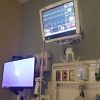Why You Should See a Cardiologist for Preventative Heart Care
- The Importance of Preventative Heart Care
- Understanding Heart Health Risks
- The Role of a Cardiologist in Preventative Care
- Case Study: The Benefits of Early Detection
- How to Find the Right Cardiologist
- Taking Action: Start Your Preventative Heart Care Today
The Importance of Preventative Heart Care
Heart disease is one of the leading causes of death worldwide, but the good news is that it is largely preventable with the right care. Preventative heart care focuses on reducing risk factors and promoting a healthy lifestyle before any serious issues arise. This is why seeing a cardiologist regularly is a proactive and effective approach to maintaining heart health.
Understanding Heart Health Risks
There are various factors that contribute to poor heart health, including high blood pressure, high cholesterol, obesity, smoking, and lack of exercise. These risk factors can be mitigated through lifestyle changes, but they often go unnoticed until a serious condition develops. This is where the expertise of a cardiologist becomes invaluable in identifying and addressing these risks before they turn into major health concerns.
The Role of a Cardiologist in Preventative Care
Cardiologists specialize in diagnosing, treating, and preventing heart diseases. They are equipped with the knowledge and tools to evaluate your heart health through various tests, such as cholesterol screening, stress tests, and heart imaging. By identifying early warning signs and providing personalized prevention strategies, a cardiologist helps you avoid serious conditions like heart attacks, strokes, or heart failure in the future.
Case Study: The Benefits of Early Detection
Consider the story of John, a 45-year-old man with a family history of heart disease. He was living a relatively healthy life but had never seen a cardiologist. During a routine physical exam, his doctor referred him to a cardiologist for further evaluation. After a comprehensive assessment, the cardiologist identified high cholesterol and recommended lifestyle changes, including diet modification and regular exercise. By catching these risk factors early, John was able to take action before more serious complications arose. Today, John is living a heart-healthy life, and his risk of heart disease has significantly decreased.
How to Find the Right Cardiologist
Finding a cardiologist who suits your needs can seem daunting, but there are a few key factors to consider. Start by asking for recommendations from your primary care physician or friends and family. Look for a cardiologist who is board-certified, has experience in preventative care, and makes you feel comfortable. Don't hesitate to ask questions about their approach to heart health and prevention during your consultation.
Taking Action: Start Your Preventative Heart Care Today
Taking charge of your heart health is the first step in living a long and healthy life. Don't wait for symptoms to appear before seeking help. Schedule an appointment with a cardiologist for preventative care and take proactive steps toward reducing your risk of heart disease. Whether you're young or old, it's never too early or too late to prioritize your heart health.
Remember, seeing a cardiologist for preventative heart care is an investment in your future. The benefits of early intervention and consistent heart health monitoring can save you from costly treatments and potentially life-threatening conditions down the road.




















